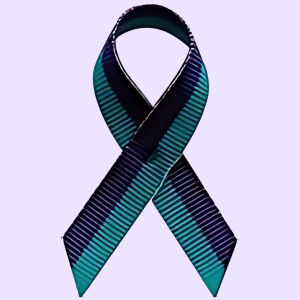Understanding Suicide & How to Help

Suicide is a leading cause of death among youth and young adults. It is preventable, and awareness, education, and support can save lives. At Tri-Town Youth Services, we are committed to providing resources, education, and intervention strategies to support youth in distress.
Click Here to Inquire About QPR Suicide Prevention Training
If you or someone you know is showing these signs, reach out for help immediately. Call or text the 988 Suicide & Crisis Lifeline for 24/7 confidential support.
Warning Signs of Suicide
According to the National Institute of Mental Health (NIMH) and American Foundation for Suicide Prevention (AFSP), the following signs may indicate someone is at risk of suicide:
Verbal Cues
Expressing hopelessness (“I can’t take this anymore,” “I just want to disappear”)
Talking about being a burden to others
Mentioning wanting to die or not be alive
Behavioral Changes
Withdrawing from friends, family, or activities
Giving away possessions or saying goodbye
Increased use of alcohol or drugs
Reckless behavior or taking dangerous risks
Unexplained aggression, agitation, or extreme mood swings
Emotional Signs
Persistent sadness, anxiety, or depression
Sudden calmness after deep distress
Feeling trapped or like there is no way out
Myth 1: People who talk about suicide are just seeking attention.
✅ Fact: Talking about suicide is a warning sign. It should always be taken seriously
Myth 2: Asking someone if they are suicidal will put the idea in their head.✅ Fact: Asking directly about suicide can reduce risk and provide an opportunity to help.
Myth 3: Suicide happens suddenly, without warning.
✅ Fact: Most people show warning signs before attempting suicide.
Myth 4: Only people with diagnosed mental illnesses die by suicide.
✅ Fact: While mental health conditions increase risk, life stressors, trauma, and loss can also contribute.
Myth 5: Once a person decides to die by suicide, nothing can stop them.
✅ Fact: Intervention works. Many who receive support go on to live fulfilling lives.
Prevention Strategies
Suicide prevention requires awareness, community involvement, and open conversations. Here’s how we can help reduce suicide risk:
1. Create a Safe and Supportive Environment
Encourage open conversations about mental health.
Reduce access to lethal means (e.g., safe firearm storage, limiting medication access).
Promote social connectedness through support groups and school involvement.
2. Recognize the Signs & Reach Out
Notice behavioral and emotional changes.
If concerned, ask directly: “Are you thinking about suicide?”
Listen without judgment and offer support.
3. Promote Mental Health Resources
Encourage professional help, such as therapy or crisis counseling.
Share helpline numbers, such as 988 or Crisis Text Line (Text HOME to 741741).
What To Do If Someone is Suicidal
If someone is in immediate danger, do not leave them alone and take the following steps:
Stay Calm & Present – Listen and acknowledge their pain.
Ask Directly – “Are you thinking about suicide?”
Ensure Safety – Remove any harmful objects.
Get Help – Call 911, 988 or take them to an emergency room.
Encourage Professional Support – Connect them with a mental health professional.
If it is not an immediate crisis but you are still concerned, encourage them to reach out to a trusted adult, counselor, or mental health provider.
What to Say & What Not to Say
It can be hard to know what to say when someone is struggling. Here are helpful and harmful phrases:
✅ Say This:
“I’m here for you, and I care about you.”
“You are not alone. Let’s find support together.”
“You don’t have to go through this alone.”
“I believe you, and I want to help.”
❌ Avoid Saying:
“You’re overreacting.” (Minimizes their feelings)
“Just be positive.” (Dismisses their pain)
“Suicide is selfish.” (Shames them instead of helping)
“I know exactly how you feel.” (Each experience is unique)
RESOURCES
You Are Not Alone. Help Is Available.
Suicide is preventable, and together, we can break the stigma and support youth in crisis. If you or someone you know is struggling, reach out today!
If you or someone you know needs support, please reach out.
In Connecticut: Crisis Services for Youth Dial 211
Vistit: CT Suicide Prevention | Connecticut Suicide Advisory Board
National Crisis Lines and Additional Information:
📞 988 Suicide & Crisis Lifeline – Call or text 988
📱 Crisis Text Line – Text HOME to 741741
💻 National Alliance on Mental Illness (NAMI) – nami.org
🧠 American Foundation for Suicide Prevention (AFSP) – afsp.org